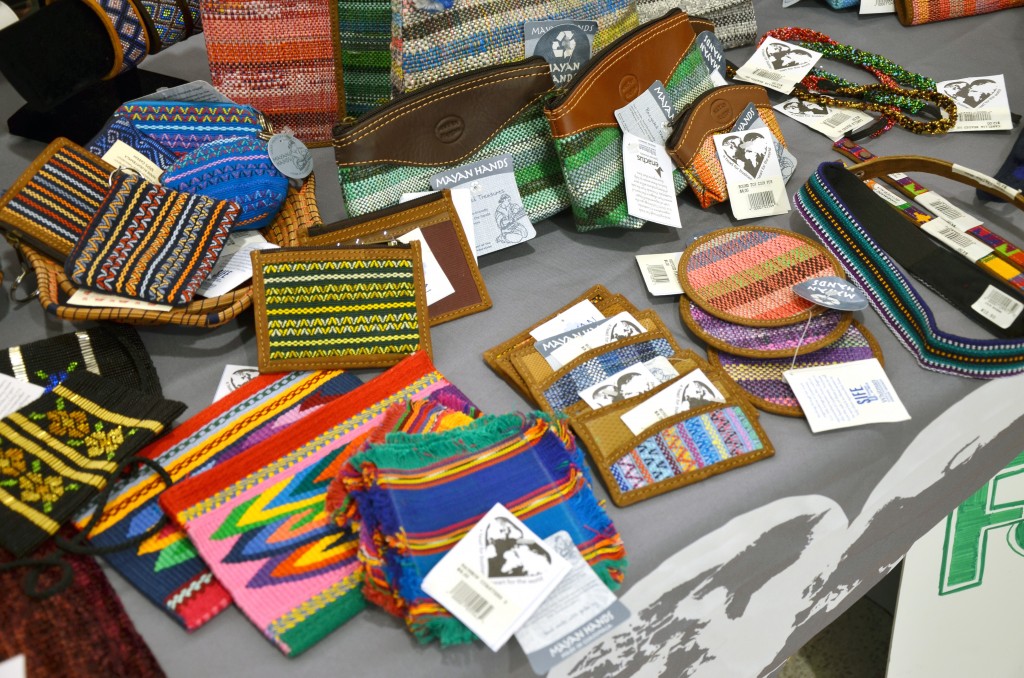
The Binghamton Fair Trade Club teamed up with Syracuse University Enactus’ Team Guatemala this past week to help sell products from Mayan weavers in Guatemala to Binghamton University students, the proceeds of which will be going toward helping the impoverished weavers become self-sufficient.
The goal of the Fair Trade Club is to bring attention to unjust trading conditions around the world and to encourage people to buy and sell products acquired through just and fair conditions.
Jibbin Abraham, president of Fair Trade and a junior majoring in accounting, said that hosting this event at BU was a great opportunity to connect and raise awareness about these types of issues in developing countries.
“Fair Trade is helping producers in developing nations basically sell their products to developed countries such as the U.S. in order to overcome middlemen,” Abraham said. “So for example, with Team Guatemala, these Mayan weavers would generally only be able to sell their products to tourists and in their local areas, so different Fair Trade organizations help them to get access to the American market, and Team Guatemala from Syracuse works with four organizations who are involved with this project.”
According to the project brochure, nearly one million weavers in Guatemala lack the formal education to run their own businesses, which has resulted in the weavers selling their products for less than they cost to make, thus contributing to the cycle of poverty.
The project was started in 2007 and succeeded in sending back over $125,000 to Guatemala and providing more than 200 scholarships for young girls to be able to go to school.
Abraham said that before Fair Trade organizations started to intervene, Mayan weavers had a much more difficult time making a profit.
“With these Mayan weavers, prior to Fair Trade getting involved, they sold their items at low costs just to get money, so they were not getting compensated for the time and effort spent making and producing these items,” Abraham said. “Syracuse was able to go in and identify gaps in production and say, we can take your simple product and take it to the next level for college students and people here in America, and help you gain access to this new market.”
Morgan Strauss, project manager of Team Guatemala and a senior majoring in management, said the project is important in allowing more girls access to education.
“90 percent of the proceeds go back to Guatemala, and it funds scholarships for young girls since Guatemala is a male-dominated society and women don’t have many of the opportunities that males do,” Strauss said. “The cost of transportation, school supplies and uniforms becomes expensive for families, so the scholarships are helping to break that cycle of poverty and illiteracy for females.”
According to the project brochure, Mayan women have practiced the ancient art of backstrap weaving for 5,000 years, and it has become an integral part of their daily lives.
Every January, Team Guatemala has the opportunity to visit the country and interact with the Mayan weavers. Strauss said that in Guatemala, the conditions are poor, and the project is important in helping to improve the quality of life of these weavers.
“The women essentially live in huts and there is a high level of poverty there,” Strauss said. “So, something that is great about this project is that it gives them security that they will be able to sell their products for more than it costs them to make it, and they can do it in the comfort of their homes so they do not have to worry about having to get someone to watch their children.”
During the visit to Guatemala, the team also works on product development targeted toward college students.
The products that are sold include luggage tags, laptop cases, key chain holders, coin purses and picture frames and are available in the Syracuse University bookstore, 3fifteen and Etsy.
Daniel Friedman, a junior double-majoring in environmental science and philosophy, politics and law, said he was pleased with the selection of products at the sale.
“I thought that the designs of the products looked nice,” Friedman said. “They had iPad cases and small purses that were very colorful and decorated, and I definitely think that the project is worthwhile and helpful for people who are suffering in developing nations.”


